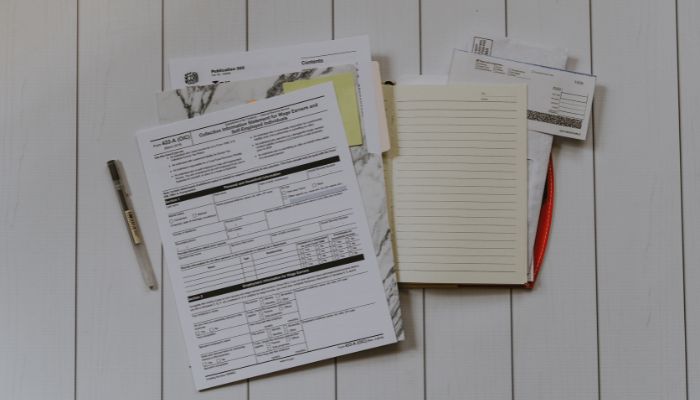
Did you know 86% of employers conduct background checks on potential employees? You’re probably wondering why are background checks important.
Background checks are important because they help verify the authenticity and credibility of individuals, ensuring safety and integrity in various interactions. They provide a comprehensive view of an individual’s history, enabling informed decisions that contribute to a safer and more accountable society.
So, let’s unravel the mystery behind background checks, their history, legal implications, and why are background checks important.
Table of contents
Understanding Background Checks
Your company’s understanding of background checks is crucial in maintaining a safe and efficient work environment. By gaining a firm grasp on this process, you’re ensuring the suitability and integrity of prospective employees. Having a comprehensive background check in place is a proactive step towards protecting your company’s reputation, and safeguarding your existing workforce.
Understanding background checks involves familiarizing yourself with the various types of background checks available. These can range from criminal history checks to education verification, prior employment confirmation, and even credit checks. Each type offers a unique insight into a candidate’s past behavior, which can be indicative of their future actions.
If you’re wondering where can you get a background check, numerous reputable agencies and online platforms offer these services. They ensure that the checks are conducted legally and thoroughly, covering all necessary areas relevant to the potential employment.
Furthermore, the importance of background checks can’t be overstated. They don’t just help in mitigating risk but also assist in maintaining compliance with laws and regulations, thus aiding in avoiding potential legal repercussions. An effective background check is a powerful tool in your hiring arsenal, one that’ll help you make informed decisions.
The History and Evolution of Background Checks
Over the years, you’ve seen substantial changes in the way background checks are performed and how crucial they’ve become in today’s hiring process. Background checks have moved from being a cursory part of pre-employment screenings to an integral part of the hiring process.
Initially, employers only verified references provided by potential employees. The focus was primarily on the candidate’s character and job performance.
As industries evolved, so did the hiring process. Employers started conducting criminal background checks to ensure workplace safety. This became even more critical in sensitive sectors such as finance or healthcare.
Today, due to advancements in technology and the digitalization of records, the background screening process has become more comprehensive and precise. It includes verification of education, previous employment, credit history, and even social media activity.
Each phase in the evolution of background checks has made them increasingly necessary. They don’t just assess a candidate’s fit for a job but also mitigate potential risks. This evolution showcases the importance of background checks in ensuring a safe, productive, and trustworthy workplace.
Top Ten Reasons Of Why Background Checks Are Important

Provides Effective Hiring
In today’s competitive job market, why are background checks important? They play a crucial role in ensuring that businesses make informed employment decisions.
Background screening services help in verifying the employment history of a job candidate, ensuring that they haven’t exaggerated or lied about their experience. This is especially important when considering the CVs of candidates.
A basic background check can reveal discrepancies between what’s on a resume and actual job history. The impact of a bad hire can be detrimental to company performance, not just in terms of productivity but also in team dynamics.
Minimizes Turnover
Background checks employers conduct can significantly reduce the costs associated with replacing employees. Background investigations into previous employers and reference checks can provide insights into the candidate’s work ethic and behavior. This reduces the chances of hiring someone who might leave prematurely, saving the company additional time and resources spent on recruitment and onboarding.
Protects Company Reputation and Assets
Business owners understand the importance of maintaining a good reputation. Background screening experts today emphasize the potential risks of theft or fraud by employees. A thorough criminal records check can reveal if a potential hire has any history of criminal activities. Moreover, poor hiring practices can tarnish a company’s reputation, especially if it becomes public knowledge.
Ensures the Safety of Your Employees
Background screening firms prioritize the safety of the workforce. Hiring individuals with violent tendencies or a history of problematic behavior can make the environment unsafe. Background check reports can include checks against the sex offender registry or criminal record searches, ensuring that employees work in a safe work environment.
Minimizes Legal Liability
Why do companies do background checks? One primary reason is to minimize legal liabilities. If an employee harms another due to negligent hiring, the company might face lawsuits. Background screening step ensures that companies fulfill their responsibility to provide a safe workplace, protecting them from potential liabilities.
Saves Costs of Litigation
Background checking agencies help businesses avoid the financial implications of legal actions resulting from the actions of unchecked employees. Criminal record searches and checks against public records can prevent potential legal issues down the line.
Provides Peace of Mind
Employee background checks offer peace of mind to both employers and their teams. Knowing that colleagues have been vetted and are trustworthy boosts employee morale and well-being.
Increases the Quality of the Talent Pool
Background checks for employment can act as a deterrent for insincere job-seekers. As word spreads that a company conducts thorough checks, it attracts more qualified candidates, enhancing the overall quality of the talent pool.
Complies with Clients’ Corporate Policies
Many clients and customers demand that businesses conduct background checks as part of their business practices. Being compliant not only meets these demands but also reinforces trust and reliability in business relationships.
Fulfills a Duty to Check
For certain positions and industries, there’s a legal requirement to conduct background checks. For instance, it’s necessary to check the background of anyone working with children or in sensitive security roles. This is not just about compliance but also about the moral duty businesses have towards society.
Legal Implications of Background Checks

In light of these developments in background check procedures, it’s crucial for you to understand the legal implications that come with them, as it’s not just about uncovering potential risks but also about respecting privacy laws and rights.
Firstly, a thorough employment background check can help protect your company from legal liability. If an employee harms others while performing their job and it’s found that you didn’t conduct a proper background check, you could face a negligent hiring lawsuit. So, it’s not just about the risk, it’s about your legal responsibility too.
Secondly, your background check policy must adhere to privacy laws. It’s critical to ensure that the information gathered is used solely for the purpose of evaluating suitability for employment. Misusing this information could lead to serious legal repercussions.
Furthermore, when considering who performs background checks, it’s important to engage accredited agencies or platforms. These entities are equipped with the expertise and legal knowledge to conduct checks in compliance with the Fair Credit Reporting Act (FCRA) and the Equal Employment Opportunity Commission (EEOC). This ensures that background checks are conducted fairly and respect the rights of the prospective employees.
Finally, the entire process of background check should be done in accordance with legal compliance. This involves following the guidelines set by the Fair Credit Reporting Act (FCRA) and the Equal Employment Opportunity Commission (EEOC). These regulations ensure that background checks are conducted fairly, respecting the rights of the prospective employees.
Understanding these legal implications not only protects your company, but also upholds the dignity of the employment process.
Risks of Not Conducting Background Checks
The question often arises, “are background checks necessary?” The implications of skipping this vital process can be vast and damaging to any organization. Here are some of the primary risks associated:
Hiring Unqualified Individuals
The most immediate risk is the potential to hire unqualified individuals. Without Criminal Record Check or Credential Verification, employers might end up recruiting someone with a history of dishonesty or someone who fakes their qualifications.
Employment Verifications ensure that the Dates Of Employment provided by the applicant match up with their claims. Similarly, verifying through Educational Institutions ensures that the degrees or certifications presented are authentic.
Not all roles demand a deep dive into a potential employee’s Driving Records or Credit Report, but positions involving financial responsibilities or driving company vehicles make these checks crucial. Skipping these steps can lead to hiring employees who are not suited for their Job Titles, which can impact the overall productivity and efficiency of an organization.
Potential Lawsuits and Liabilities
If an organization fails to conduct thorough Background Screening, it might end up hiring someone with a questionable past, leading to a range of legal complications.
For instance, without a proper Criminal Check, an entity might unknowingly hire someone with a history of violent behavior, putting other employees at risk. This oversight can lead to potential lawsuits, especially if the organization hasn’t taken the necessary Compliance Procedures. In some states, County Criminal searches can provide detailed Criminal Records Searches that can prevent such legal entanglements.
Financial Losses
One of the main Benefits Of Background Checks is the prevention of financial mishaps. A candidate with a history of financial mismanagement, evident in their Credit Score or Consumer Reports, might not be the ideal choice for finance-related roles.
Without comprehensive Financial Records checks or Pre-Employment Credit Screening, businesses open themselves to potential financial fraud or mismanagement.
Damage to Reputation
The image and reputation of a company play a vital role in its Business Success. American Businesses, in particular, are under scrutiny by consumers, peers, and Consumer Reporting Agencies.
An Adverse Hiring Decision, such as employing someone with a history of Lies On Job Applications, can tarnish a company’s reputation, especially if it comes to light that the firm did not use a Reliable Background Screening service or consult a reputable Background Check Company. In the age of Clearance Social Media Background checks, news travels fast, and a company’s reputation can be ruined overnight.
In conclusion, while it might seem time-consuming or costly to perform background checks, the risks of not doing so far outweigh the initial investment. Ensuring that every Employment Application goes through an Accurate Background Check is not just a measure of safety but a testament to the company’s commitment to integrity and excellence.
Best Practices in Conducting Background Checks

Conducting background checks is a crucial aspect of the hiring process, ensuring the safety, integrity, and competence of the workforce. However, it’s essential to follow best practices to ensure accuracy, fairness, and compliance with relevant laws. Here are some recommended guidelines:
Obtaining Consent
Before initiating any background check, it’s paramount to obtain the candidate’s consent. This means providing them with a Consent Form and ensuring they understand the checks you intend to perform. In many jurisdictions, not obtaining proper Informed Consent can lead to legal consequences. Furthermore, candidates should be given the option to clarify or dispute any adverse findings. Employers should also be aware of the “Pre-Adverse Action Disclosure” requirements in some regions, ensuring applicants are informed before any Adverse Actions based on the check’s results.
Using Accredited Agencies or Platforms
Always opt for a reputable Background Check Company or platform. Accredited Background Check agencies or platforms, such as those recognized by Consumer Reporting Agencies, ensure that the checks are thorough and compliant with legal standards. These agencies are well-versed in the nuances of Criminal Searches, Financial Records, Driving Records, and other necessary verifications. Organizations like the Company For Background Checks offer accreditation to agencies that uphold industry standards, ensuring reliability.
Ensuring Comprehensive Checks
While it’s essential to respect privacy, businesses should ensure their checks are comprehensive. This includes not just basic Criminal Record Checks, but also delving into Motor Vehicle Records for roles that involve driving, checking Social Security Contributions for employment history veracity, or even Credit Report Checks for financial roles. The scope of the check should align with the demands and responsibilities of the job title in question.
Regularly Updating Check Procedures
The world of employment and the legal landscape are always evolving. As such, Human Resources departments should regularly review and update their Background Screening Program. This ensures that the checks remain relevant, comprehensive, and compliant with current laws. Staying updated with the latest Compliance Procedures and best practices, perhaps through platforms like SAGE Business Researcher, can be immensely beneficial.
Respecting Applicant Rights and Privacy
Every applicant has Constitutional Rights and Civil Rights that must be upheld during the background check process. Employers should ensure they’re only accessing information relevant to the job role and that this data is handled with the utmost confidentiality. Communication Skills are crucial here; ensuring candidates understand the process, its purpose, and how their data will be used can prevent misunderstandings and potential legal complications.
Conclusion
In conclusion, don’t underestimate the importance of background checks. They’ve evolved significantly, ensuring safer environments and minimizing risks.
Legal implications have shaped their use, providing a fine balance between privacy and security. Did you know that 85% of employers found misrepresentations on a resume or job application during a background check? This illustrates their critical role in verifying credibility and ensuring integrity.
So, always consider background checks as an essential tool in your decision-making process.
FAQs
What information does a background check reveal?
A background check can reveal various details depending on its comprehensiveness. Typically, it might include criminal record check results, credit report, employment history verified via social security contributions, educational institutions attended, and dates of employment. It might also delve into driving records for specific roles and validate personal references given by the applicant. For some positions, even financial records and a criminal check for more in-depth history might be essential.
How long does a background check take?
The turnaround time for a background check can vary. While some checks, like criminal searches, might only take a few days, others, such as employment verifications, can take longer, especially if they involve contacting previous employers. On average, many background checks are completed within one to two weeks.
Are there any limitations to what a background check can show?
Yes, there are limitations. Most consumer reporting agencies only provide information for a certain number of years, adhering to compliance procedures and regional laws. For instance, some regions might not allow access to certain conviction records after a specific time frame.
Can an individual conduct a self-background check?
Certainly! It’s beneficial for individuals to conduct a self-background check to verify the accuracy of records, especially if they’re job hunting. Numerous background screening companies offer such services. This can be especially useful to ensure there are no errors in your consumer reports or other common records.
How often should background checks be updated?
While there’s no one-size-fits-all answer, many organizations opt for regular updates, especially for roles with special security concerns. It’s advisable for companies to update background checks every few years or whenever there’s a significant change in an employee’s role.